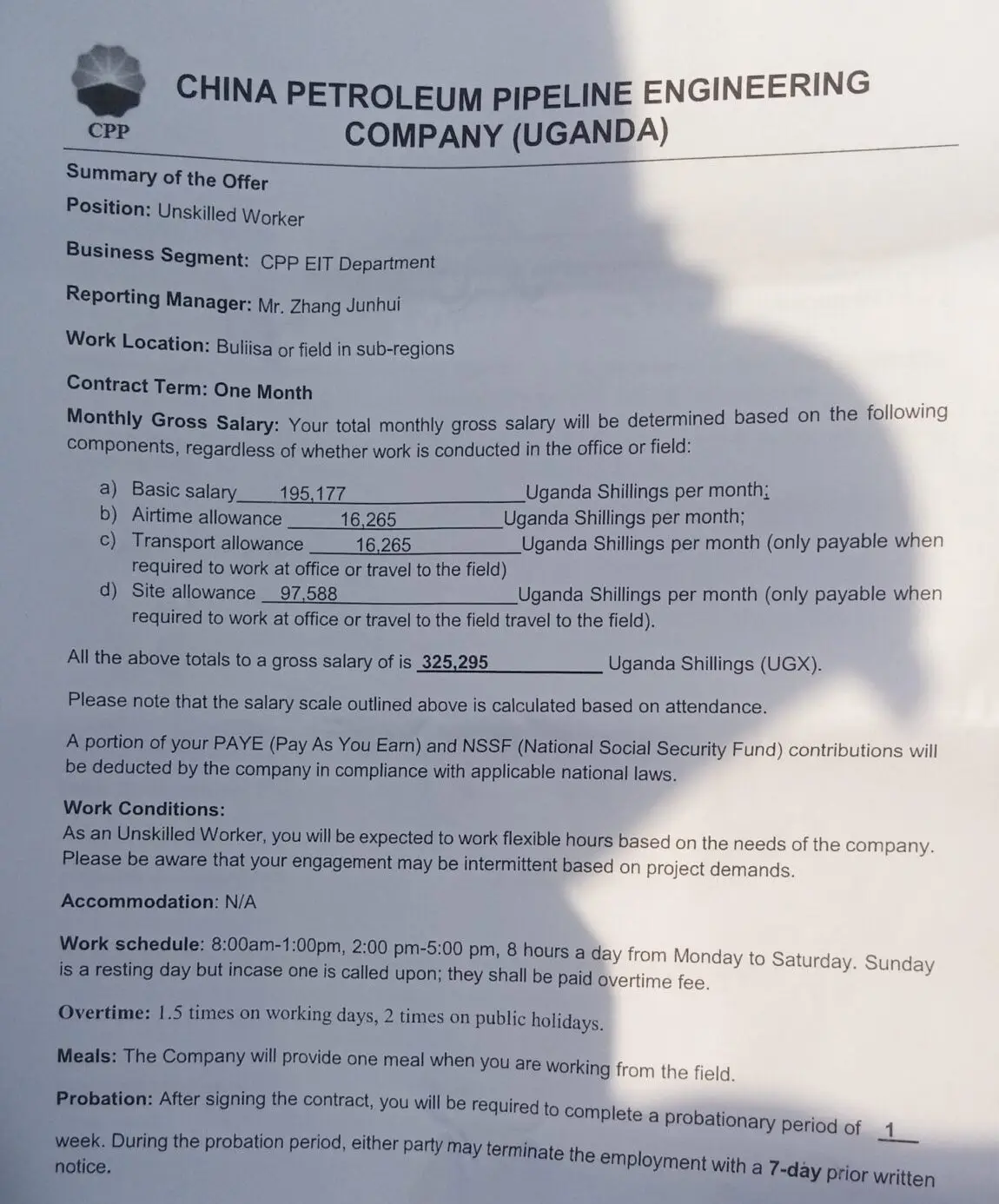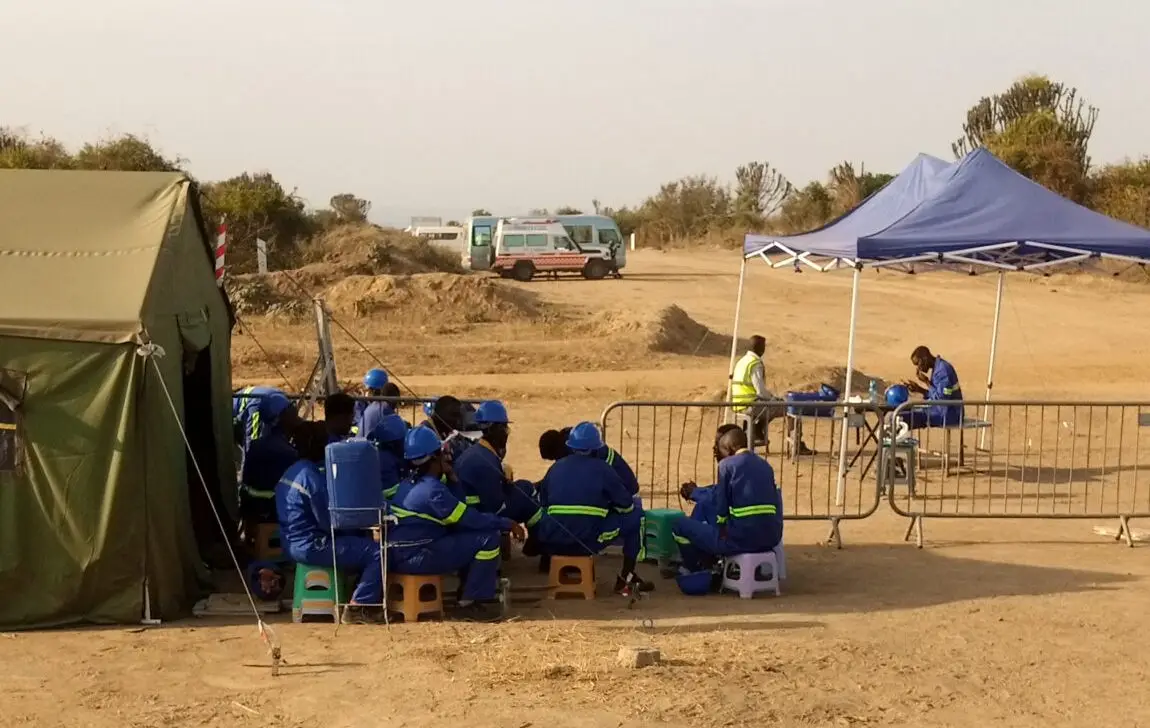In the heart of Buliisa District, a troubling story is emerging from the ongoing East African Crude Oil Pipeline (EACOP) project, where promises of opportunity have quickly turned into a tale of exploitation and unmet expectations.
Mujuni Deo, a resident from one of the villages along the pipeline route, shared his experience with our field observer. In October of last year, he and several others were recruited by China Petroleum Pipeline Engineering Company (CPP), the subcontractor working on the EACOP project. They were promised a daily wage of UGX 20,000 and assured that after a week of training, they would become semi-skilled workers, ready to contribute to the project’s electrical installation efforts—specifically, threading electric cables into pipes to help heat crude oil for transport to Tanga Port in Tanzania.

The workers followed through with their training, receiving their promised pay( one of the contracts pictured above). But when the real work began, they discovered the reality was far from what they had been told. After two weeks of labor, the workers were handed contracts offering a meager UGX 325,000 per month—well below the agreed-upon daily wage and only slightly above the so-called EACOP minimum wage. When they raised concerns, their complaints were met with indifference.

The recruitment process captured by one of our observers
This is part of a larger pattern in the EACOP project, where local workers are often promised fair wages and opportunities for advancement, only to see these promises broken. Multinational corporations like CPP and Total E&P Uganda, operating under the umbrella of EACOP, exploit local laborers, who find themselves working long hours in challenging conditions for inadequate pay, while the companies continue to profit.
The workers are now organizing, hoping to secure fair wages and better treatment, but they face significant challenges in dealing with corporate indifference and weak local regulatory oversight. Their struggle is one shared by many communities affected by oil infrastructure projects—one that highlights the ongoing need for labor justice and corporate accountability.
The fight for better working conditions and fair pay is far from over. These workers’ experiences serve as a stark reminder that the true cost of development is not only measured in financial terms, but in the well-being and dignity of those whose labor fuels these grand projects.
This article is part of our ongoing effort to document the impact of oil projects on local communities. We are grateful for the continued support of our partners and funders who inspire and sustain our mission for justice and accountability.



